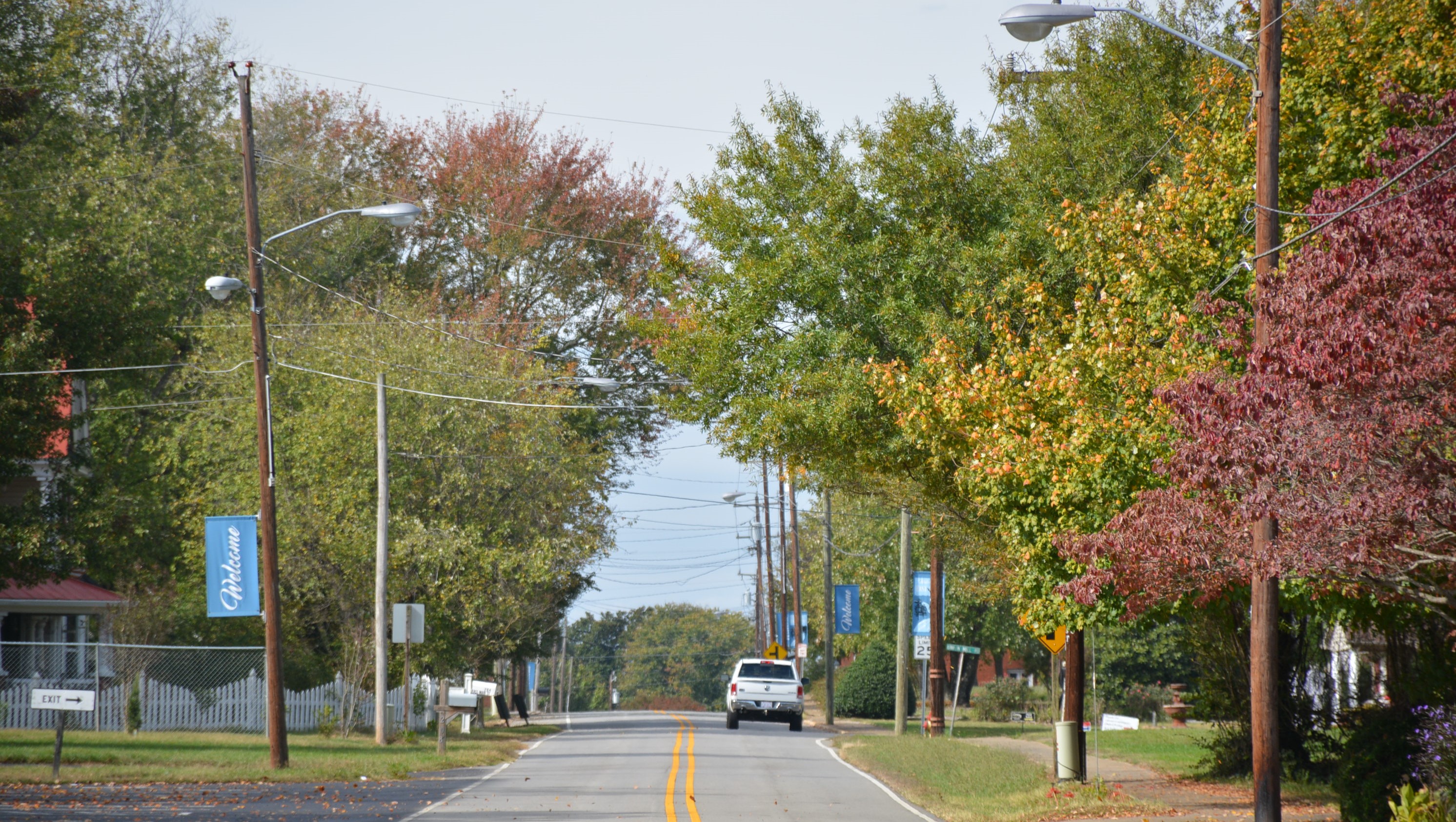About us

East Bend is a small town located in the foothills of North Carolina in northeastern Yadkin County. It was incorporated in 1887 and was named for the east bend of the Yadkin River.
East Bend, which was founded in 1849, is rich in history and was a bustling town in the late 19th century when the J.G. Huff Buggy factory operated. At one time, the buggy plant was the largest of its kind in the South and had more residents than Yadkinville, the county seat.
The town still has several historic buildings inside the town limits including the J.G. Huff house on East Main Street. There are several beautiful historic houses on Main Street. See Historical section for some distinguished homes and businesses.
East Bend, which has about 600 residents, has always been a popular bedroom community for residents who commute to work in nearby Winston-Salem.
East Bend has a full-time police department, a water system, garbage and recycling collection, a public works/grounds department, a streets department, and a town administration.
Various businesses are located in the East Bend Industrial Park.
East Bend is also home to the East Bend Senior Center, which provides activities and meals for area elderly residents. Meals on Wheels also operates out of the Senior Center. Yadkin Christian Ministries also has an East Bend location at 118 E NC 67 Bypass, East Bend, NC 27018. There are several churches with a variety of denominations. The town is also home to Carolina Medicine in the former East Bend Medical Center.
Other notable buildings in the town include the East Bend Town Hall, East Bend Public Library, East Bend Fire Station, and East Bend Elementary School. East Bend is also close to several area vineyards, Pilot Mountain State Park, the Yadkin River, and the town is a popular destination for area cyclists. See Events section, and Town Calendar for events happening in East Bend year-round.
Town Meeting Note
Welcome to the meeting of the Town of East Bend. As many of you are aware, we customarily begin these meetings with an invocation. This prayer is intended for the benefit of the council members and should be directed to them and not the audience. Those who deliver the invocation may reference their own religious faith as you might refer to yours when offering a prayer. We wish to emphasize, however, that members of all religious faiths are welcome not only in these meetings, but in our community as well. The participation of all our citizens in the process of self-government will help our fine country best serve the good people who live here. Employees and members of the audience are welcome to pray or not pray.
Upcoming Events
Inquiries
- A: East Bend Town Hall
108 W Main Street, East Bend, NC 27018
- T: 336-699-8560
- E:
eastbend@yadtel.net
- H:
MON-FRI 8:00 AM-5:00 PM